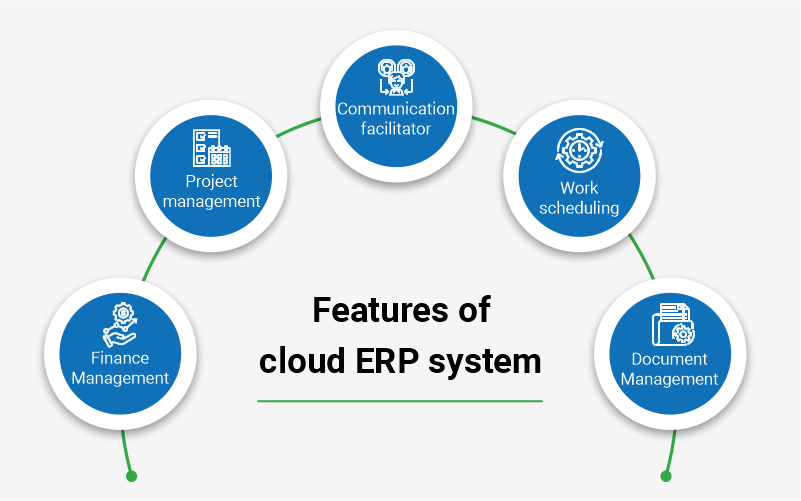Last Updated on November 23, 2023 by softtech
In recent years, the AEC industry has made use of construction management software and ERP for streamlining the construction process and increasing efficiency. Surveys have found that over half of the construction companies have used ERP to make the working process easier for builders, contractors, and laborers. The AEC industry is seen opting for custom-tailored cloud-based construction ERP for their needs.
Why AEC industry relies on cloud construction management software?
Cloud-based construction ERP offers many benefits for firms and contractors, such as scalability, mobility, and improved real-time access point visibility. Apart from this, ERP also improves job costs and budget planning. Furthermore, cloud-based construction ERP such as opticon also helps bid efficiently, manage projects and facilitate remote working.
What are the top construction management software features?

Cloud-based construction ERP for offering better functionality to construction and contracting processes should include the following features:
Finance Management
The financial expenditures involved in accounting and bidding of the construction firms are relatively high. These expenditures need to be monitored, and the cloud-based construction ERP should integrate and exchange financial data. The software needs to automate payroll management, handle balance check, bills, invoices, and work order entry. In addition, it should be able to submit multiple bids at once and also be able to keep a record of bids received from subcontractors. For an accurate financial forecast, the software should offer accurate expense tracking and detailed bids and project budgets reports.
Project management
The project management cloud-based construction ERP software should be able to track the client’s projects and progress reports. The project management ERP software should be able to plan resources, integrate new clients’ requests, and also be able to schedule deadlines. The software for multiple projects should gather teams for collaborates, ensure project profits, and update the project schedules.
Communication facilitator
It is easy to lose track of emails, text messages, and phone calls in traditional construction methods. The lost information gives rise to miscommunication between teams. A communication ERP software should offer automated replies to clients, send important messages to teams, and keep track of their queries and work. The software should also track client questions and queries related to the projects and be able to escalate conflicts.
Work scheduling
In construction, it is difficult to allocate individual work. Good cloud-based construction software assists with workload automation. The software schedules tasks for various teams and workers and allocates equipment for various projects. The software should balance the workload in cases of unforeseen obstructions such as client input, site accidents, or bad weather. The software needs to plan a project timeline and allocate workforce and resources accordingly. In addition, it should also be able to create reminders for builders, contractors, and workers for project progress reports.
Document Management
The construction field produces several information for projects such as blueprints, 3D sketches, models, and documents. Good construction ERP software should document these information and save it for future use. The software should automatically generate workflow data reports from the documents stored. The pre-prepared data reports improve the contractor’s productivity and increase the project’s progress.
The relevance of cloud computing construction ERP to the construction industry has increased in the last decade. The cloud-based ERP speeds up the project progress and helps in the proper arrangement of information. As a result, cloud-based software has revolutionized the construction domain and stabilized relations between builders, contractors, and workers. Although the cloud-based ERP software is laced with several benefits and features, it has many drawbacks also. Eliminating these drawbacks can make cloud-based construction ERP the construction industry’s future.
About Author
Olivia Jones
Technology Specialist
Olivia is a highly skilled and experienced Technology Specialist with 10+ years of hands-on expertise in the rapidly evolving field of technology. She has a proven track record of successfully implementing and managing a wide range of technological solutions, ensuring optimal performance and efficiency. Olivia possesses a deep understanding of industry trends and emerging technologies, enabling her to provide strategic guidance and drive innovation within organizations. With a strong focus on problem-solving, she consistently delivers tailored solutions that align with business objectives while maximizing productivity and cost-effectiveness.
About SoftTech Engineers
A leading IT company (www.softtech-engr.com) facilitating business and technology transformation across the AEC industry through innovative software products and solutions. Equipped with 25+ years of deep domain expertise and industry knowledge, SoftTech has helped more than 4500 clients & government organizations, with more than 25000 users in India and around the world to gain a competitive edge and lead from the front in the industry.

